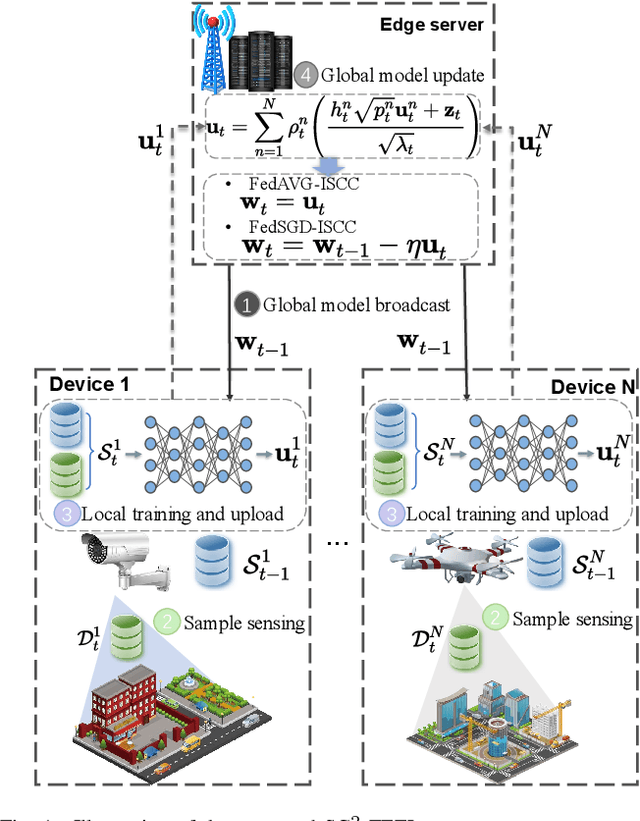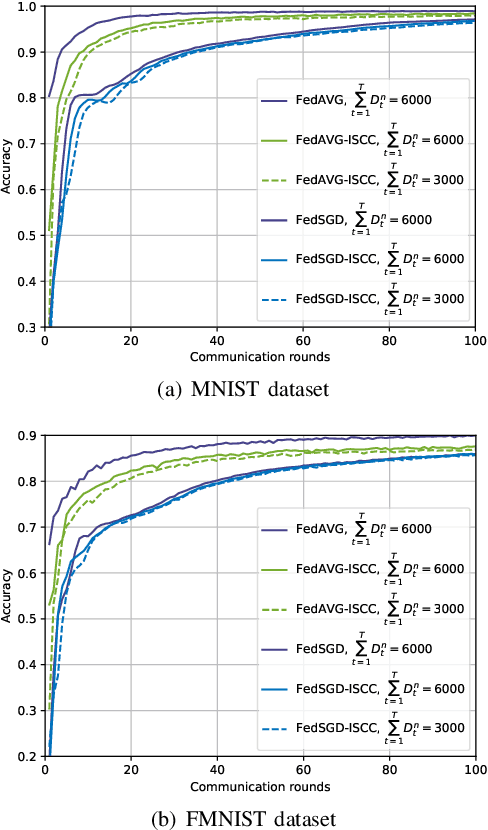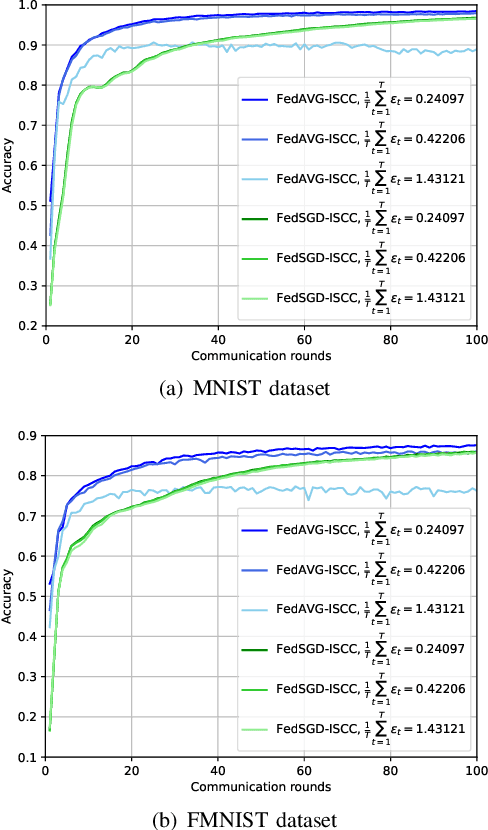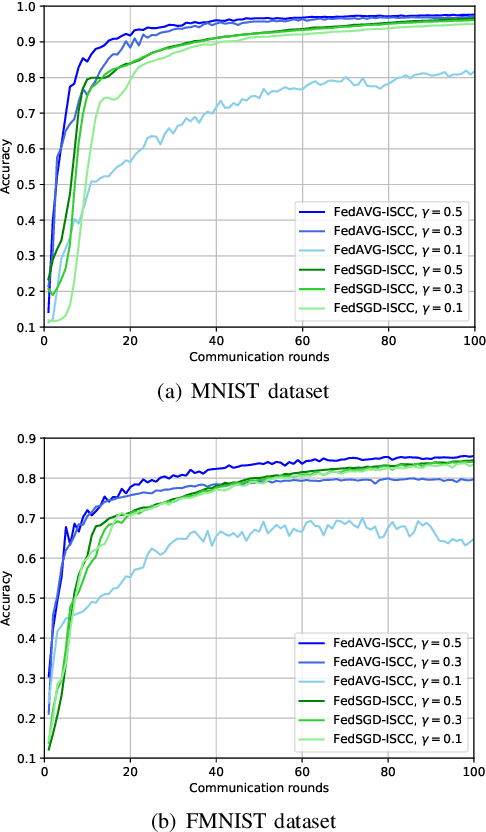Yipeng Liang
Federated Learning with Integrated Sensing, Communication, and Computation: Frameworks and Performance Analysis
Sep 17, 2024



Abstract:With the emergence of integrated sensing, communication, and computation (ISCC) in the upcoming 6G era, federated learning with ISCC (FL-ISCC), integrating sample collection, local training, and parameter exchange and aggregation, has garnered increasing interest for enhancing training efficiency. Currently, FL-ISCC primarily includes two algorithms: FedAVG-ISCC and FedSGD-ISCC. However, the theoretical understanding of the performance and advantages of these algorithms remains limited. To address this gap, we investigate a general FL-ISCC framework, implementing both FedAVG-ISCC and FedSGD-ISCC. We experimentally demonstrate the substantial potential of the ISCC framework in reducing latency and energy consumption in FL. Furthermore, we provide a theoretical analysis and comparison. The results reveal that:1) Both sample collection and communication errors negatively impact algorithm performance, highlighting the need for careful design to optimize FL-ISCC applications. 2) FedAVG-ISCC performs better than FedSGD-ISCC under IID data due to its advantage with multiple local updates. 3) FedSGD-ISCC is more robust than FedAVG-ISCC under non-IID data, where the multiple local updates in FedAVG-ISCC worsen performance as non-IID data increases. FedSGD-ISCC maintains performance levels similar to IID conditions. 4) FedSGD-ISCC is more resilient to communication errors than FedAVG-ISCC, which suffers from significant performance degradation as communication errors increase.Extensive simulations confirm the effectiveness of the FL-ISCC framework and validate our theoretical analysis.
 Add to Chrome
Add to Chrome Add to Firefox
Add to Firefox Add to Edge
Add to Edge